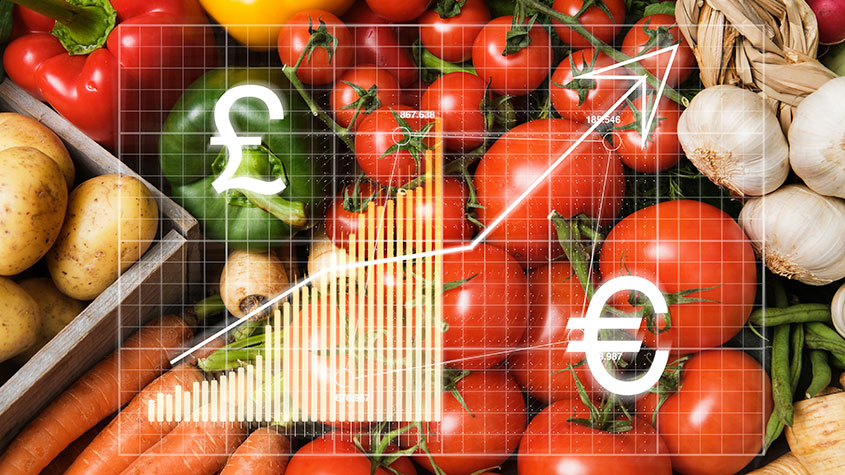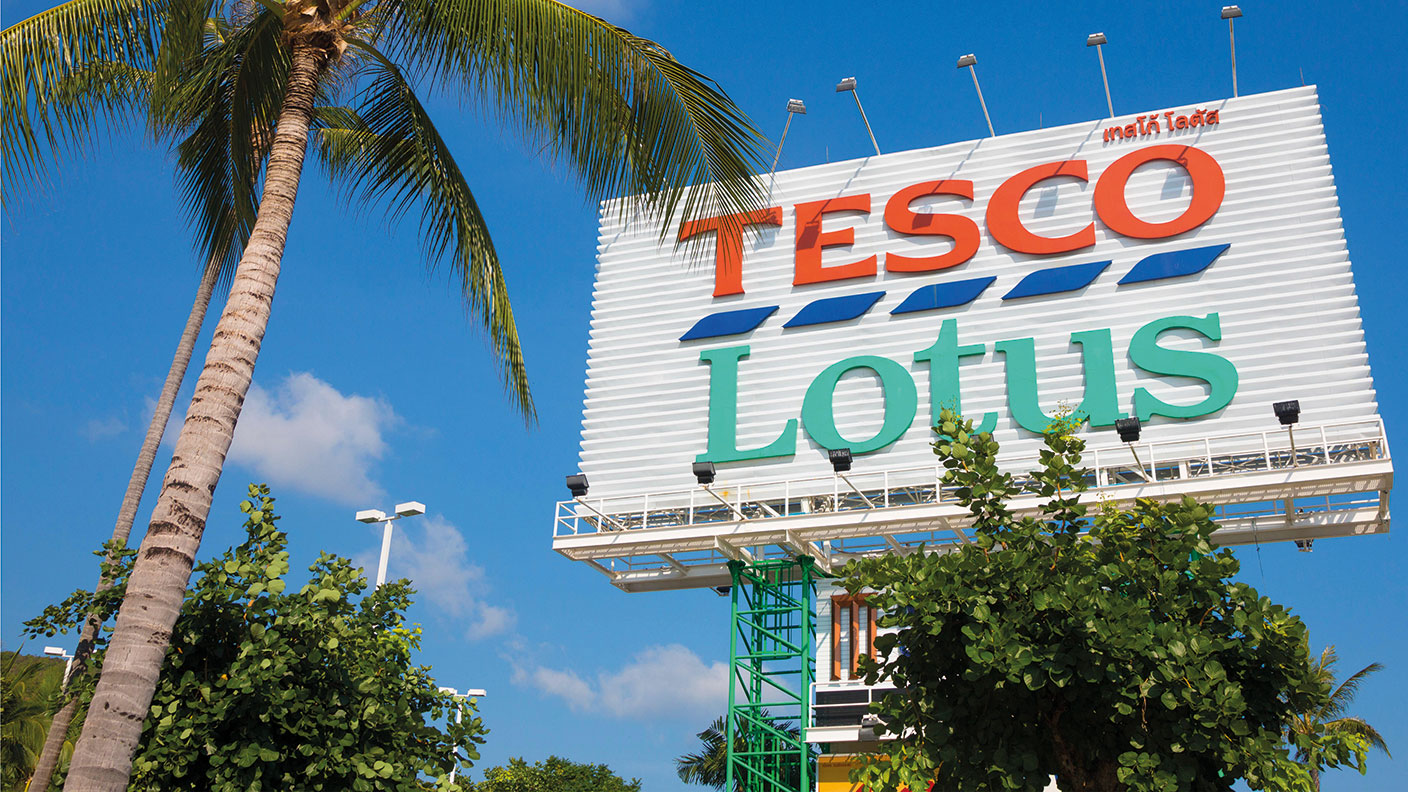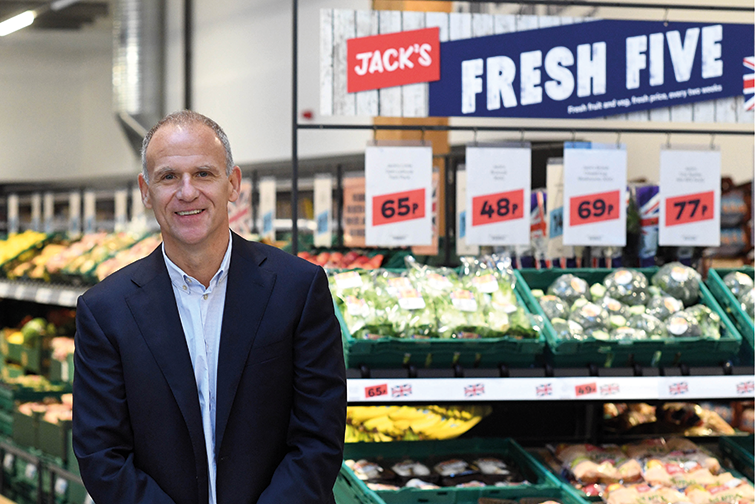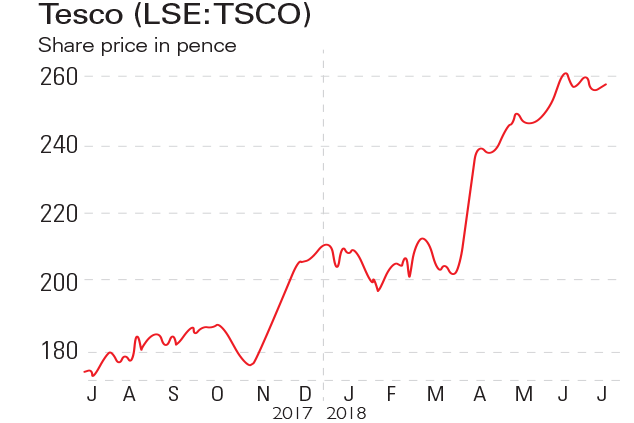Tesco’s shabby accounts scandal
Shares in Tesco hit new lows after the supermarket launched an investigation into its dubious accounting.

Get the latest financial news, insights and expert analysis from our award-winning MoneyWeek team, to help you understand what really matters when it comes to your finances.
You are now subscribed
Your newsletter sign-up was successful
Want to add more newsletters?

Twice daily
MoneyWeek
Get the latest financial news, insights and expert analysis from our award-winning MoneyWeek team, to help you understand what really matters when it comes to your finances.

Four times a week
Look After My Bills
Sign up to our free money-saving newsletter, filled with the latest news and expert advice to help you find the best tips and deals for managing your bills. Start saving today!
Tesco issued its third profit warning in a month this week. And this one was a real shocker. Britain's biggest retailer revealed that it had overstated its estimated first-half profits by almost 25% £250m, and that it was asking accounting group Deloitte to investigate.
The shares plunged by 12% in a day to an 11-year low. Four senior managers have been suspended, including the head of the UK business, where the accounting hole appeared. Dave Lewis, the new chief executive, has just started his tenure at the supermarket. A former Tesco grandee described the affair as "mind-boggling".
What the commentators said
It didn't help that Tesco "retreated into the worst kind of corporate gobbledygook" to explain why it had overstated profits so massively, said The Independent. In plain English, Tesco was counting money it hadn't yet earned, while delaying the reporting of costs already incurred.
MoneyWeek
Subscribe to MoneyWeek today and get your first six magazine issues absolutely FREE

Sign up to Money Morning
Don't miss the latest investment and personal finances news, market analysis, plus money-saving tips with our free twice-daily newsletter
Don't miss the latest investment and personal finances news, market analysis, plus money-saving tips with our free twice-daily newsletter
"It is the sort of shabby accounting scandal more commonly found in the lower reaches of the Alternative Investment Market" than at one of Britain's "bluest of blue chips".
Yet, Tesco investors "can't say they weren't warned", said Alistair Osborne in The Times. Last year, Cantor Fitzgerald analyst Mike Dennis issued two reports asking how a company with rising costs and falling sales could maintain a 5.2% UK profit margin.
It's worrying that "this came to light so late", said Lex in the Financial Times. The final first-half numbers are due soon. Last week "the finance department should have been fine-tuning", not finding big holes.
The managerial rot goes deeper, said Luke Johnson in the FT. Among the ten main board members, not one, including Lewis, has executive experience as a retailer, or practical experience of shopkeeping. "Very experienced, well-networked retail veterans might well have noticed something was amiss a little earlier."
Let's hope, said Alex Brummer in the Daily Mail, that the investigation won't uncover errors going back years. Corporate history suggests we can't be too confident.
As things stand, concluded Lex, it's hard to have much faith in past profits, or, for that matter, future margins and profitability. "The whole structure looks like it is subsiding."
Get the latest financial news, insights and expert analysis from our award-winning MoneyWeek team, to help you understand what really matters when it comes to your finances.

-
 Can mining stocks deliver golden gains?
Can mining stocks deliver golden gains?With gold and silver prices having outperformed the stock markets last year, mining stocks can be an effective, if volatile, means of gaining exposure
-
 8 ways the ‘sandwich generation’ can protect wealth
8 ways the ‘sandwich generation’ can protect wealthPeople squeezed between caring for ageing parents and adult children or younger grandchildren – known as the ‘sandwich generation’ – are at risk of neglecting their own financial planning. Here’s how to protect yourself and your loved ones’ wealth.
-
 How to profit from rising food prices: which stocks should you invest in?
How to profit from rising food prices: which stocks should you invest in?Tips Food prices are rising – we look at the stocks to avoid and the one to invest in this sector.
-
 Tesco looks well-placed to ride out the cost of living crisis – investors take note
Tesco looks well-placed to ride out the cost of living crisis – investors take noteAnalysis Surging inflation is bad news for retailers. But supermarket giant Tesco looks better placed to cope than most, says Rupert Hargreaves.
-
 Tesco sells its retail subsidiary in Thailand and Malaysia for £8bn
Tesco sells its retail subsidiary in Thailand and Malaysia for £8bnNews Tesco has agreed to sell its southeast Asian operations to Thai conglomerate Charoen Pokphand for £8.2bn in cash.
-
 Tesco should keep its Asian assets
Tesco should keep its Asian assetsOpinion The £7bn that Tesco could get for its Tesco Lotus business in Asia looks enticing. But holding on to it would be smarter, says Matthew Lynn.
-
 Tesco wields the axe
Tesco wields the axeFeatures Britain’s biggest supermarket is cutting back on staff and fresh food. Will the move prove counterproductive? Matthew Partridge reports.
-
 If you'd invested in: Tesco and Associated British Foods
If you'd invested in: Tesco and Associated British FoodsFeatures Tesco has seen its market value rise almost 50% in a year, while AB Foods has seen shares slide despite a rise in profits.
-
 What's behind Tesco’s alliance with Carrefour?
What's behind Tesco’s alliance with Carrefour?Features Tesco is clubbing together with French rival Carrefour to bulk buy own-label goods in an effort to cut costs. Will it succeed? Ben Judge reports.
-
 Lessons from Tesco’s turnaround
Lessons from Tesco’s turnaroundOpinion Retailers have it tough, but Tesco has shown that it’s still possible to thrive, says Matthew Lynn.